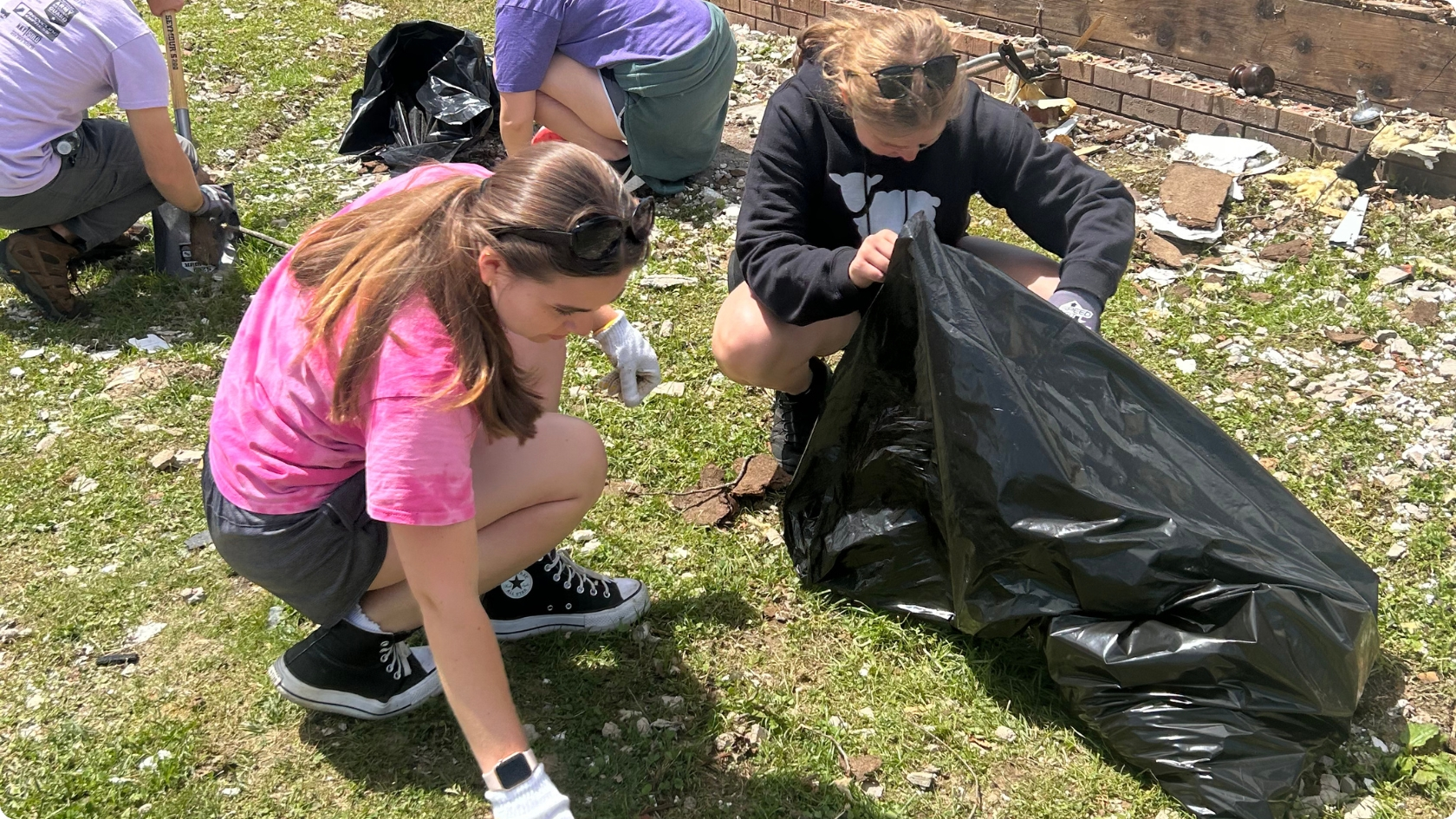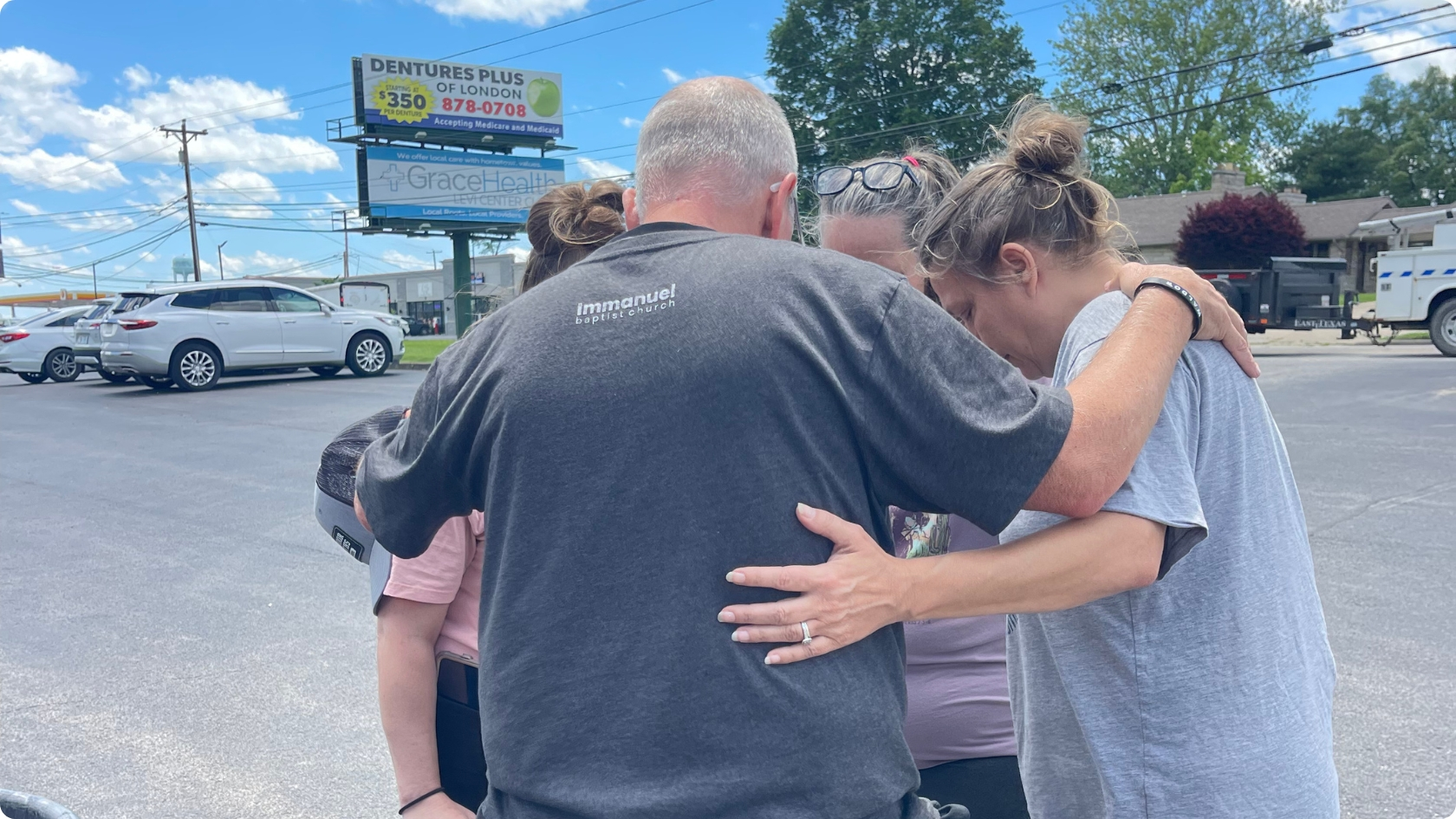Summary: God is glorified in disasters as hurting people are helped, the Lost are found, priorities are realigned, and the church comes together.
When disaster strikes—whether it’s a tornado, a personal tragedy, or a season of deep pain—many of us are left wondering: Where is God in all of this?
It’s a fair question. Tragedy can shake not only our sense of safety but also our understanding of God’s goodness. But what if God is still at work even in the most painful moments? What if He is glorified through disaster, not in spite of it?
The Bible doesn’t ignore suffering. In fact, it’s filled with people who brought their pain to God and found Him faithful, even when they didn’t fully understand His plan. Here are four ways God is glorified in times of disaster.
1. Hurting People Are Helped
One of the clearest ways God shows up in tragedy is through His people. When disaster hits, the Church moves in—not away. People step up to meet needs, carry burdens, and extend compassion in tangible ways.

This is more than just neighborly kindness. It’s a reflection of God’s heart.
“Carry one another’s burdens; in this way you will fulfill the law of Christ.”
—Galatians 6:2
Whether it’s handing out supplies after a tornado, making a meal for a grieving family, or simply showing up to sit with someone in silence, God is glorified when His people help the hurting. It reminds the world that the Church is not a building—it’s a movement of love and mercy.
2. The Lost are Found
Disaster has a way of shaking people awake.
When everything we’ve depended on falls apart, we start asking deeper questions: Is there more to life? What happens after death? Where can I find lasting peace?

Moments of crisis often open the door to spiritual conversations. People who were uninterested in God suddenly become curious. And in that search, many find the One who’s been seeking them all along.
“For the Son of Man came to seek and to save the lost.”
—Luke 19:10
We’ve seen it again and again: God uses tragedy to lead people to salvation. When everything else is stripped away, what remains is a longing for something eternal—someone trustworthy. And His name is Jesus.
If you’re curious about what it means to follow Jesus, we’d love to talk with you. You’re not alone, and your story isn’t over.
3. Priorities Are Realigned
In normal seasons, it’s easy to get consumed by things that don’t last—jobs, schedules, stuff, social media, and success. But disaster clears the clutter and forces us to see what actually matters.
When we lose the things of earth, it becomes painfully clear how little control we really have. But it also opens our eyes to what doesn’t change: God’s love. His Word. Our need for eternity.
“Set your minds on things above, not on earthly things.”
—Colossians 3:2
God is glorified when people begin to rethink their lives through the lens of eternity. For many, tragedy becomes a turning point—when they stop chasing temporary comforts and start seeking lasting purpose.
Let suffering be a reminder that this life is short, but what we do with it matters forever.
4. The Church is Unified
In times of peace, it’s easy for churches to stay in their lanes—divided by preference, denomination, or location. But when disaster hits, those walls tend to fall.
And what a beautiful thing that is.

In disaster zones, churches don’t ask which group you’re from—they just ask, How can we help?
That kind of unity glorifies God. It reflects the heart of Jesus, who prayed that His followers would be one so the world would believe (John 17:21). When believers come together to serve, pray, and lift up the name of Jesus, the gospel shines brighter than the darkness.
God is Still Good Even Here
Disaster will disrupt your plans—but it can’t destroy God’s promises. He is not absent in suffering. In fact, He’s often doing His deepest work in the middle of it.
- He helps the hurting.
- He saves the lost.
- He reshapes our hearts.
- He brings His people together.
If you’re walking through a storm—literal or spiritual—know this: God is not done with your story. And He will be glorified, even here.
If you’re searching for hope, healing, or a community to walk with, we’d love to welcome you to Immanuel.


